01:13
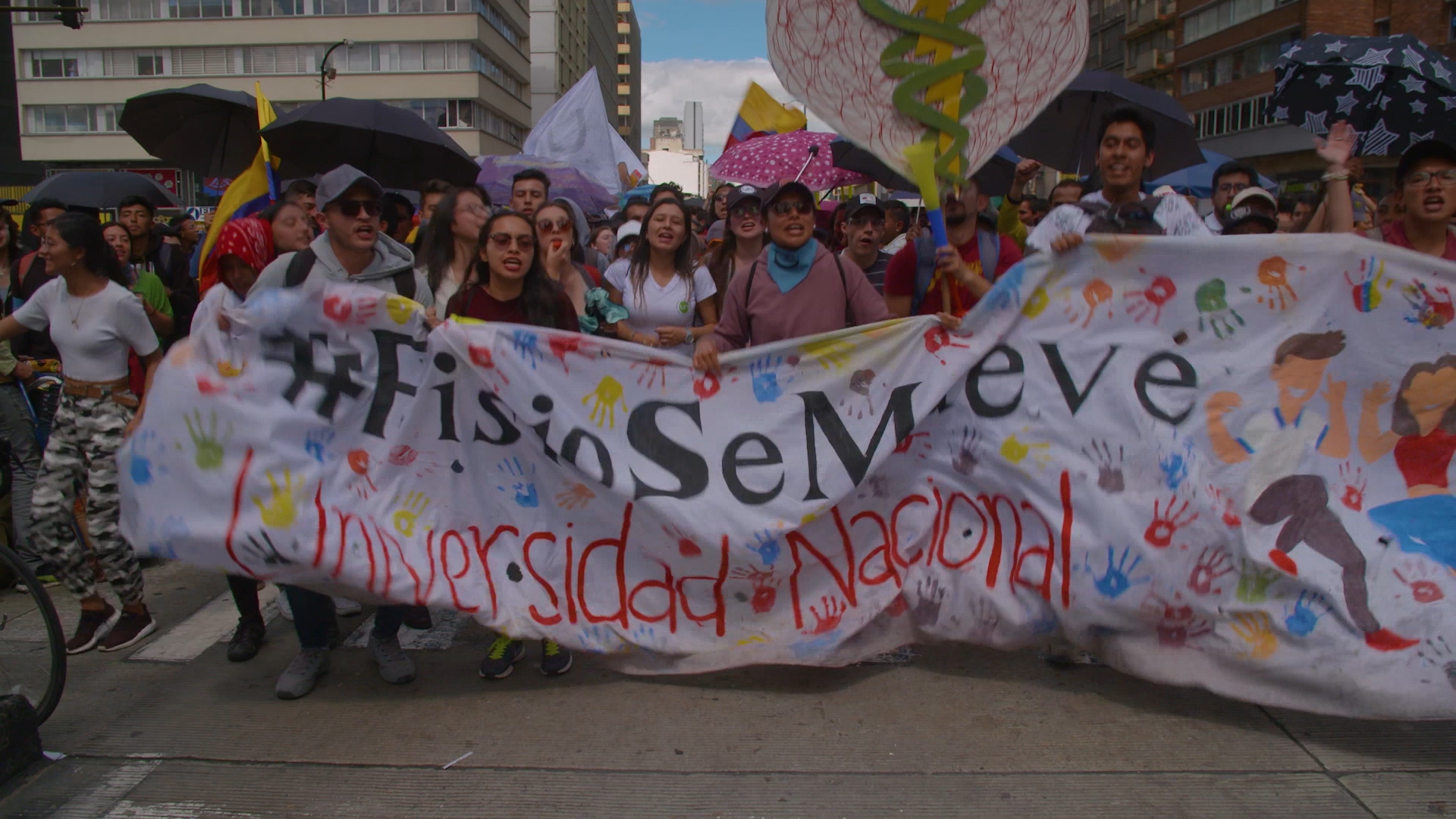
Colombia isn’t slowing down with their protests.
The country is seeing its third national strike in two weeks, as different groups of people protest President Iván Duque, his administration and their policies.
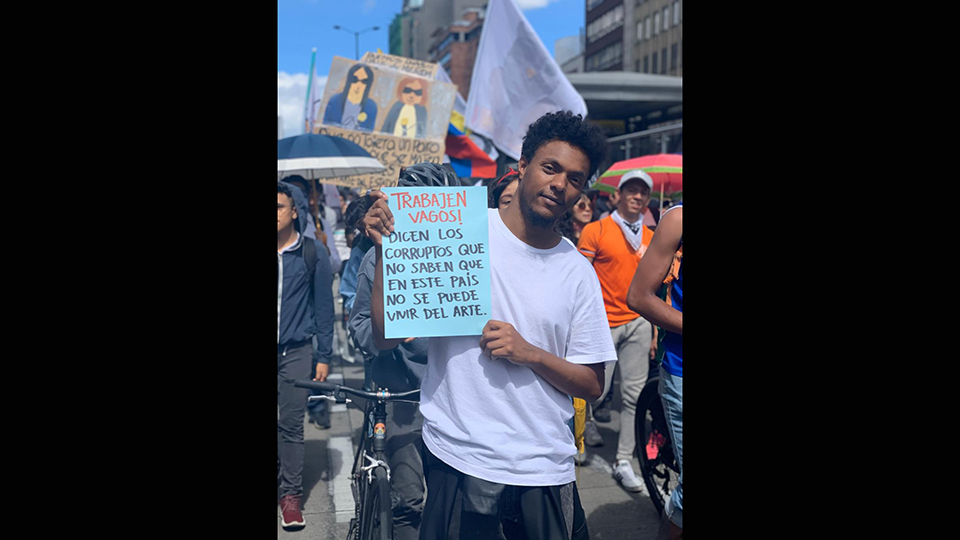
Ruben, Dancer : "Work, you lazy people! Is what the corrupt say. They don't know that in this country, you can't live off of art."
Ruben, Dancer : "Work, you lazy people! Is what the corrupt say. They don't know that in this country, you can't live off of art."
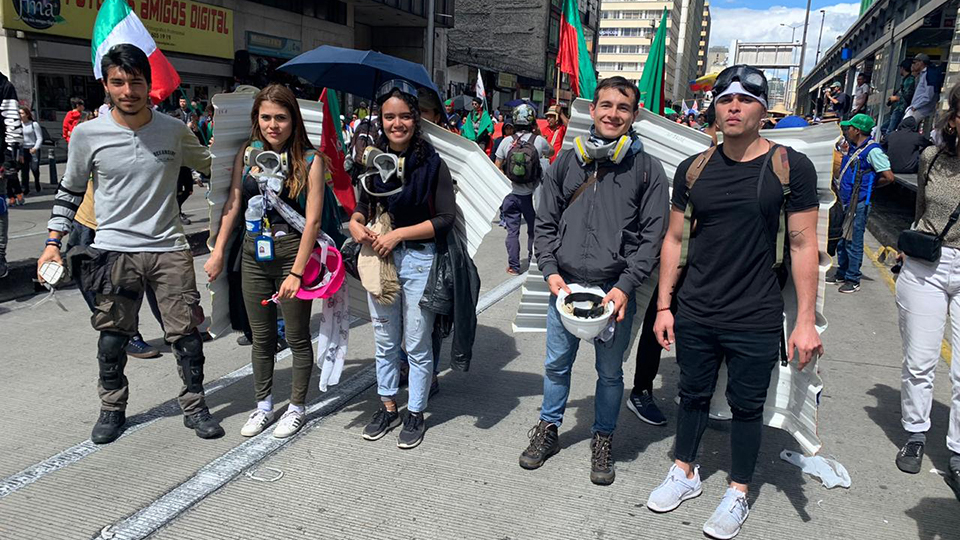
They call themselves the defenders of students. A few marches in Colombia have ended in violence . They say they are here to protect and defend student rights. They are prepared with masks in case riot police throw tear gas.
They call themselves the defenders of students. A few marches in Colombia have ended in violence . They say they are here to protect and defend student rights. They are prepared with masks in case riot police throw tear gas.
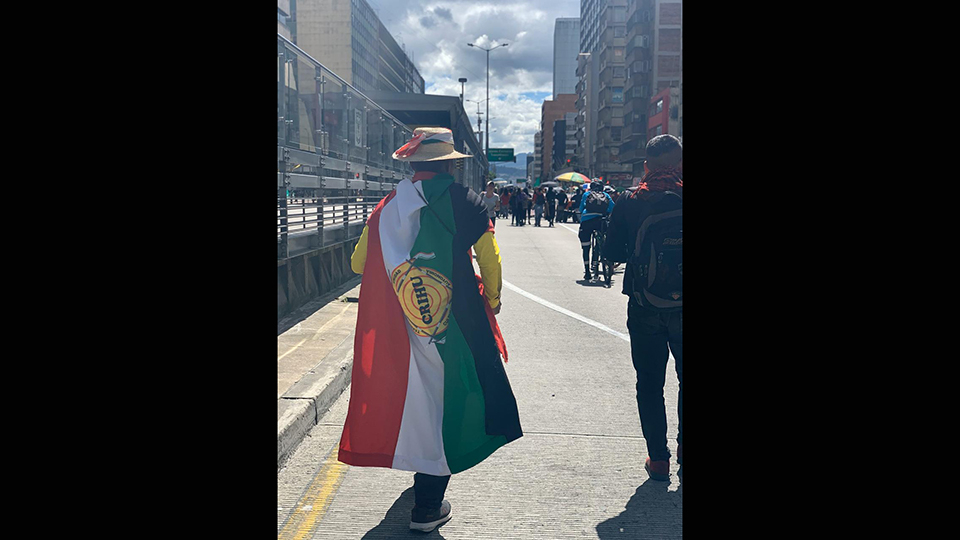
The Indigenous guard. They are protesting the deaths of indigenous leaders in Colombia.
The Indigenous guard. They are protesting the deaths of indigenous leaders in Colombia.
Colombia is the latest Latin American country to join protests throughout the region.
What makes this country different than others in the region? Various groups are marching for different reasons.
There is no set leader or one demand. It all started with different unions calling on their people to take to the streets.
CGTN’s Michelle Begue takes us through different groups of people protesting.
01:54
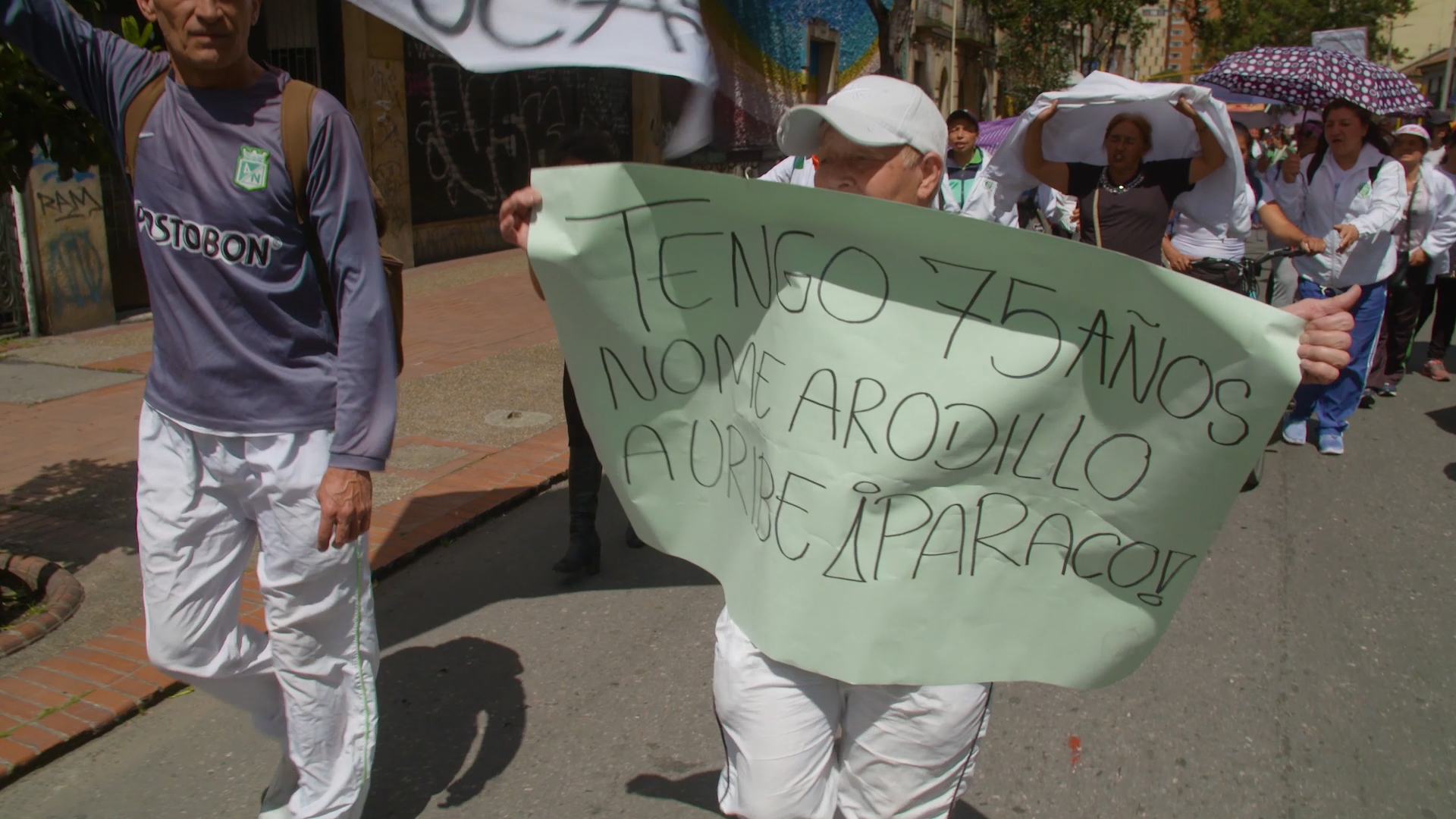
According to Al Jazeera, 55% of Colombians support the strike.
01:02
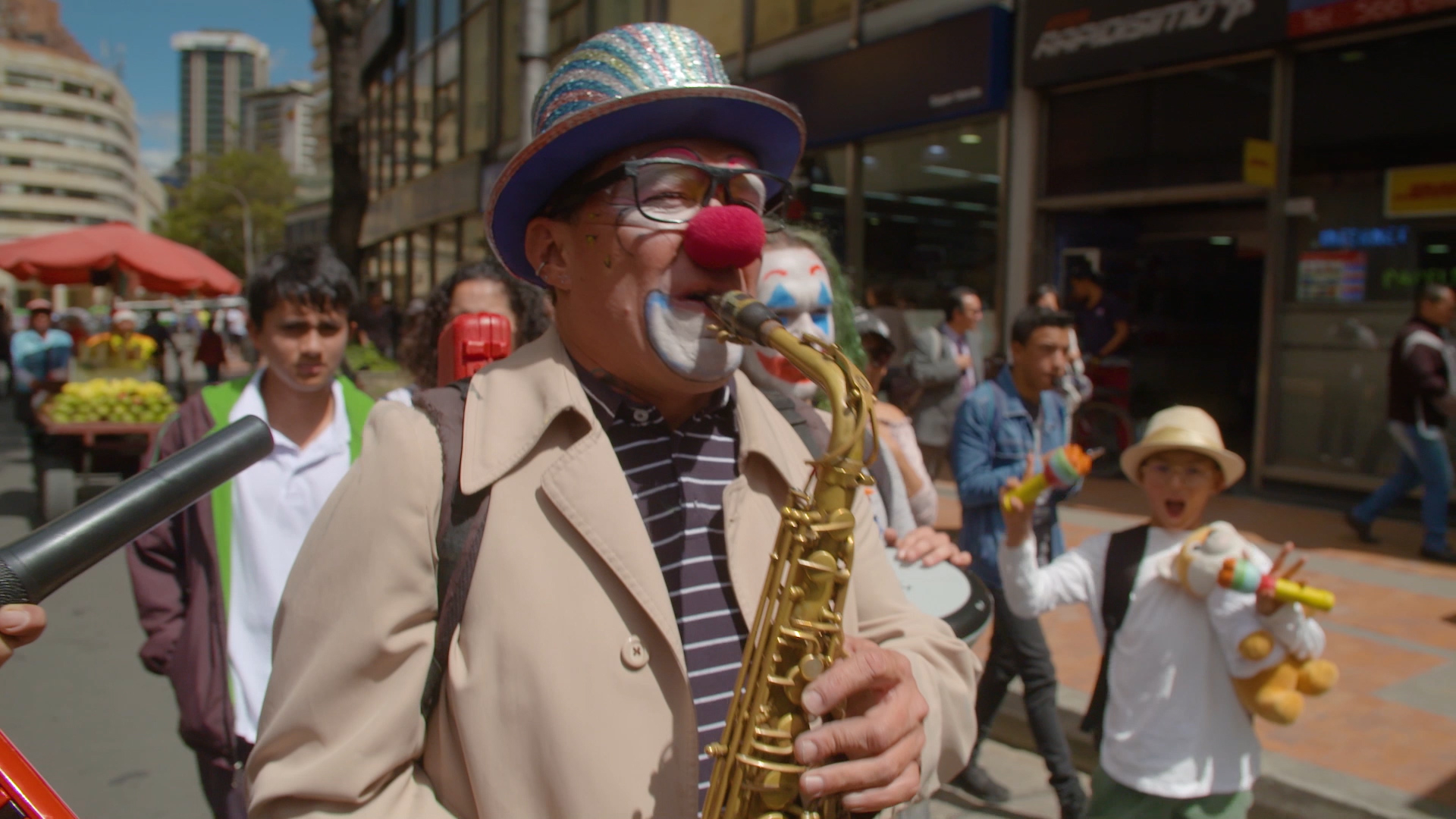
Students, professors, their parents- people of all ages and backgrounds are protesting, demanding social and economic change.
02:24
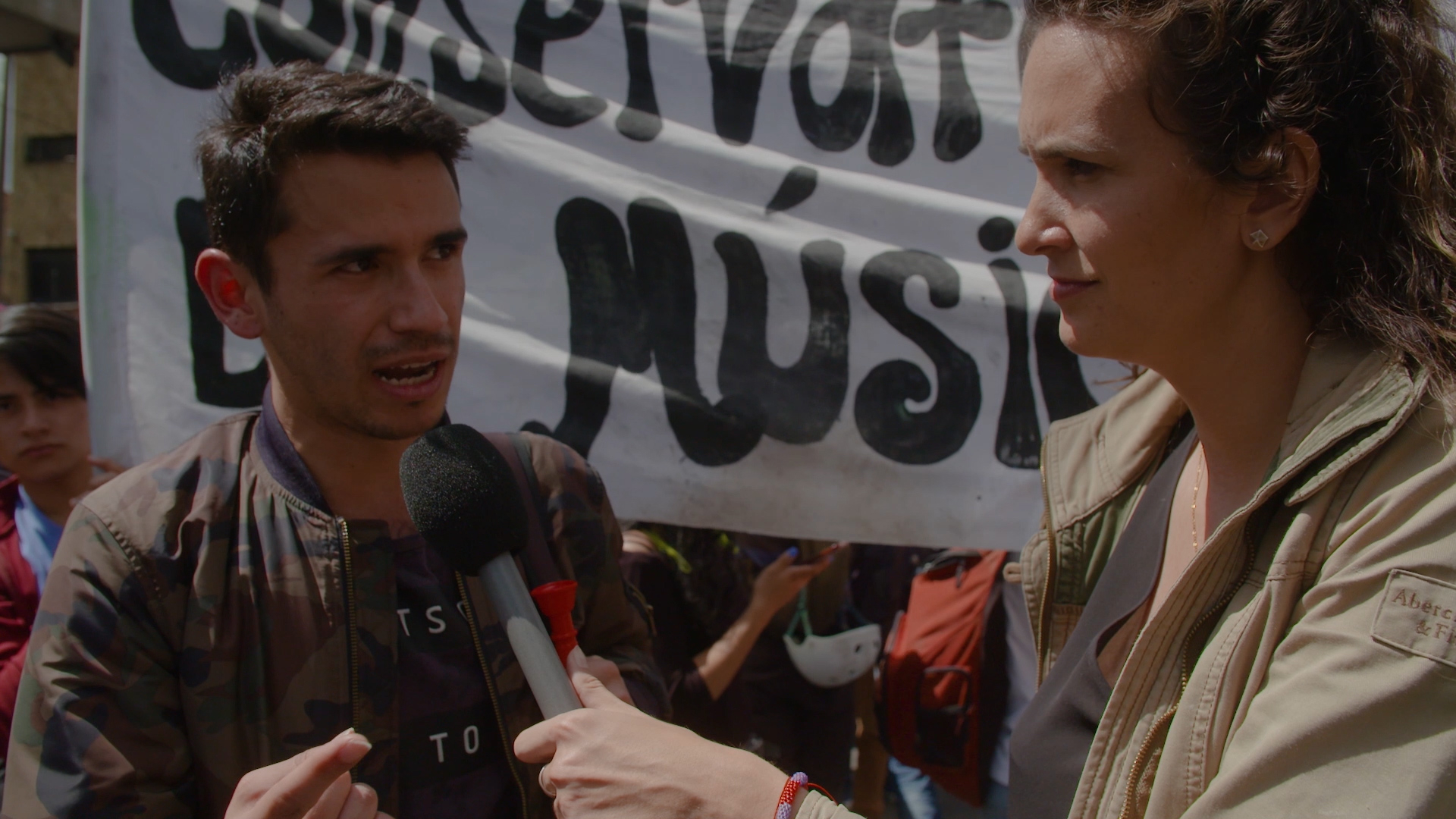
According to the BBC,a committee representing the protesters gave President Duque a list of 13 demands.
Although both sides have been talking, they haven’t been able to come up with any solutions.